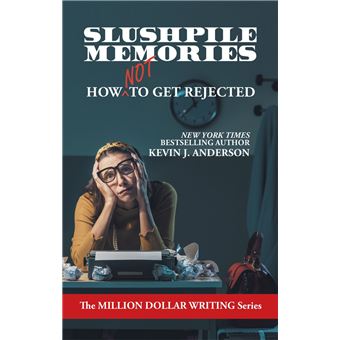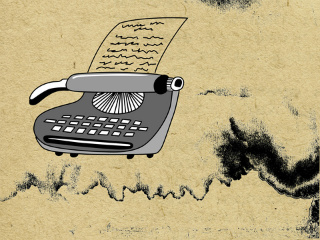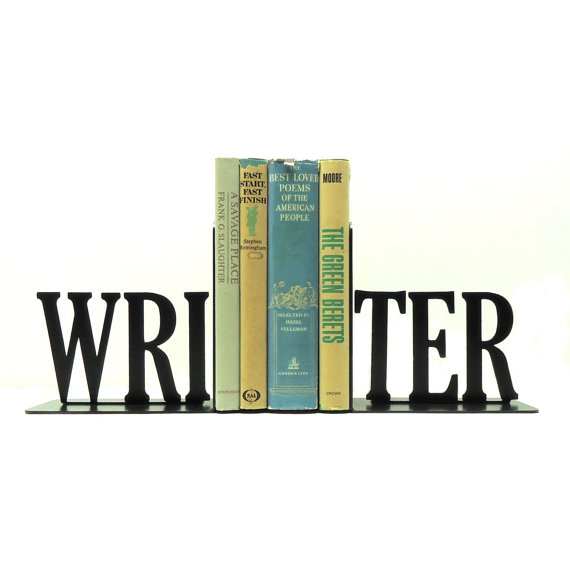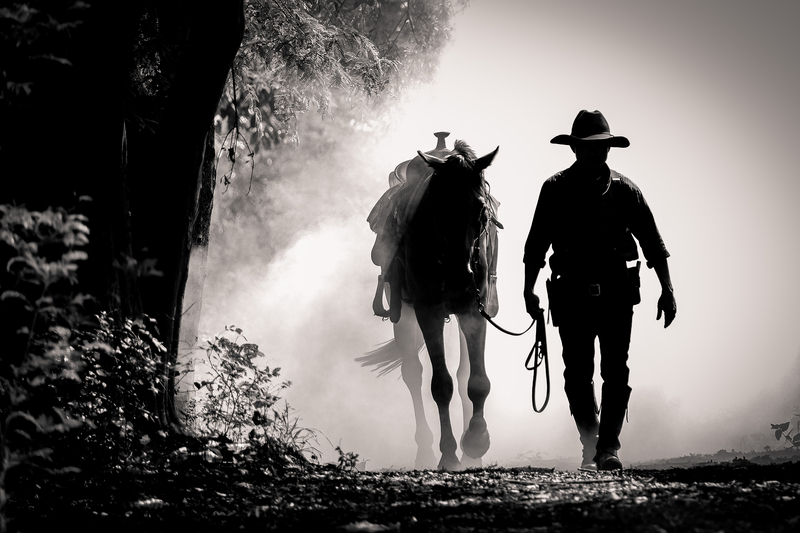I’m reading an interesting little booklet by Kevin J. Anderson, entitled Slushpile Memories: How NOT to Get Rejected. I’m hoping it will give me some solid suggestions to improve my short story sales record.

I’ve just started, but I’ve read Anderson’s work before and he’s a good writer, so I’m sure it’s going to be a good read. It’s got some sensible chapters on following directions and submitting again if you get rejected. I’m also hoping for some tips & tricks to polish and sharpen my own stories.
If you’re a writer who’s trying to break into the magazine and anthology market, you should pick up a copy of this book and read it.
How does a writer keep their muse healthy?

One of the things I like to do as I write is listen to music. I turn it on low and let my favorite songs play in the background. Right now, I’m hooked on U2-X-Radio on SiriusXM. They play U2 songs, of course, but also songs that the band members like and songs that inspired them, so it’s an eclectic mix. I also listen to movies and TV shows if I’ve seen them enough so they don’t distract me from the story I’m working on. Movies like Lord of the Rings and old John Wayne Westerns are good for that–I’ve seen them so many times that I can let them be background noise instead of paying close attention to the show.
Another inspiration is reading, of course. I try to keep up with some of the newer stories in my chosen genres, although I don’t always enjoy the dystopian stuff that seems to have become so popular nowadays. I do enjoy a good Western novel (I even like the odd “mail order bride” tale upon occasion) and am partial to mysteries even if I cannot write them effectively. Scifi and historical fiction are harder to keep up with. There aren’t a lot of novels which sound interesting to me (that dystopian thing) but I do make the attempt. I’m not a huge fan of overly political stories either–the ones where the characters have to fight conspiracies or “the old order” to succeed. I’d much rather read a good coming-of-age story or something about aliens surviving on their own planets.
I’m hoping the country is ready for some lighter-hearted stories again after all this dystopian political negativity. I, for one, have had enough realism in my novels and would like to see some humor again. And I can only hope I’m not the only one, because that’s what I tend to write.
What about you? What do you find that inspires you to write? How do you keep your muse healthy?
What are some of the obstacles writers – especially new ones – face? Here are the Top 10 in my opinion.
- Self-Confidence: The Number 1 obstacle, I believe, is yourself. It’s hard to believe in yourself when you’re getting rejection after rejection, but hang in there. Revise and edit, revise some more, and eventually you’ll succeed.
- Refusal to Edit: Ego can be just as bad as low self-esteem, however. When you feel your work cannot be improved, you’re fooling yourself.
- Lack of Support: Find yourself a network of other writers, whether in real life or online, and get the support everybody needs. Your friends and family aren’t likely to understand or sympathize with your problems.
- Lack of Time: Of course, this can be corrected. You usually don’t “find” the time to write. You make the time.
- Poor Query Letter: Your query letter must be the most highly-polished piece of writing you’ve done, or it’s not likely to attract an agent or editor.
- Poor Cover Letter: Ditto the cover letter. Check not just for spelling and grammar, but for a polished blurb and enticing “hook.”
- Lack of Skill: Writing is an art, but it’s also a science that can be learned. Read, read, read, and read some more so you know how it’s done.
- Lack of Conflict: Your manuscript (or story) must be one obstacle after another thrown at your POV character or it’s not going to be interesting enough to keep the reader’s interest.
- Lack of Plot: Many writers have a great idea, but no real plot or story. Make sure you’ve got both before you dig in and get started.
- Poor Idea: Other writers don’t even have a good idea. They just have a series of scenes playing in their head. Make sure your idea is a good one before you start plotting.
Of course, you may have your own “Top 10” list. What do you feel are the biggest obstacles a writer faces?
People always ask writers “What’s your writing routine like?” Especially if they are budding authors themselves. With this in mind, I will remind you that everyone has their own style and their own nature–what works for one person won’t work for everyone.

But back to my own routine. I try to get up at least 30 minutes before I have to leave for work every day. I use this time to post on my social media and check up on my email. I post on Facebook and Twitter every day. and I also have a Patreon site I update on weekdays.
Depending on when I get home, I may put in an hour or two of writing in the evening (unless I’ve got chores that need doing). What I write depends on what’s up in my roulette wheel. I’m currently trying to revamp the historical fiction novels as novellas, churn out some short stories and try to sell them to a variety of anthologies, edit the sci-fi novel into shape, come up with some romance plots for a ghost writer (it’s for peanuts, but every little bit helps, right?), and whip up some copy for a blog (also paying customer). I do more writing on the weekends, which I have off. Another writing-related chore is participating in my writing critique groups. I’m a member of my state writing association and the local chapter meets twice a month to discuss our stories. I’m also a member of the League of Utah Writers (their online-only chapter), which “meets” twice a month as well. We just exchange chapters and critique one another. I also have a state-related sci-fi chapter that meets once a month and the occasional critique piece from my original group (Transworld Writer’s WorkShop…we’re currently suffering from a lack of energy).
Once I get the novels whipped into shape, I’m going to start querying agents again (and a publisher for the historical fiction). That will add another chore to my routine, but it won’t be a daily occurrence. I’ll have to keep track of who I’ve queried and what their replies have been, which requires an Excel spreadsheet. My short stories are tracked by The Submission Grinder website, which also provides searches for new markets, and I periodically check that site and update the standing of each story.
As I said in the beginning, what works for me might not work at all for you. You might prefer to stay up later at night rather than getting up early. You may like to do your writing in a big lump on your days off. Whatever works for you, stick with it and keep writing!
I try to write every day. How do I accomplish this, you may ask?

I get up about an hour early every morning so I can do my social media and blogging for one thing. This gives me time to get everything done without rushing and I feel I’ve accomplished something before my day officially begins. I post on Facebook daily, and on Twitter. I update my Patreon and if it’s time, I work on one or more of my three blogs.
After I get home, I also try to fit in a little fiction work. OK, I usually eat dinner first. But after that, I’ll turn on something mindless to listen to, like an old Western movie or TV show I’ve seen before (so I won’t be distracted by it). Then it’s off to my real job–writing. I like to try to fit at least a page or two in before it’s time to chat with my pal in Iowa (we message each other every evening for around an hour). If I’ve just finished writing something, I may edit rather than create, but it’s all part of writing.
I write more on the weekends (if I’m not trying to clean the house). I usually try to fit in a few hours’ of work Saturdays and Sundays. That gives me some good solid word counts to work with. So that’s my writing schedule in a nutshell. If you’re willing to get up early (or stay up late), you can put in the work, too. Don’t just wait for “the muse” to strike–if you don’t have a writing schedule of some kind, you’re not going to get much done in the long run.
Remember when I had a nibble from that UK publisher?

I finally had my Zoom meeting (cameras off) with the guy. He likes my writing style but says he likes his books to be around 35K rather than the 90K I’ve got now. My dictionary says 35K is a novella not a novel, but whatever, right? Now I have to retool the novels to see if I can get something down around that level instead of the normal sized novels I have written out now. Must remember to toss in more conflict, too. If I’m going small, I have to go tense.
My alter ego still has had no luck with the anthologies, but she’s plugging away at them. Working on a gay-friendly theme now called “It Can Only Get Better” about the (fictional) future of the LBGT culture — or a fictional account of an alien society with one. Sounds perfect for the velyr, no? And a couple of anthologies are judging this month and should send word out in early March.
What are your experiences with publishers (or agents)? Good? Bad? Indifferent?
I saw a list of interview questions for authors the other day and one of the questions was “What genre do you secretly wish you could write and why don’t you?”

If I could do it, I’d like to write mystery stories. I like reading them (and watching them on film or television). I like trying to figure out “whodunnit” before the end of the book. But I don’t write it.
What’s stoping me? All the bloody red herrings, that’s what. My mind just doesn’t work like Agatha Christie’s or Arthur Conan Doyle’s. I start with a perfectly good idea, then can’t think of any clues for the investigator to follow. I guess I’m just not sneaky enough–or maybe I’m too sneaky and what seems obvious to me might not be that obvious to a reader. Whatever the reason, I can’t seem to get the clues lined up and tossed along the trail.
I’m reading a nice mystery story now: Still Life by Louise Penny. It’s the first in a series about Inspector Gamache, a Canadian policeman. So far, I’m enjoying it. The characters–both police and suspects–are all quirky and interesting. The reason for the murder is suitably inexplicable (as yet). It looks as if they’ve found the murder weapon–but I’m only about halfway through the book so I’m sure there’s some twist in their findings. The inspector will realize they forgot something essential and off he’ll go …
I’m also working on a series by Harry Bingham of Jericho Writers. His heroine is called Fiona Griffiths and she’s a UK policeman who has suffered from a rare psychological condition where she thought she was dead (it’s a real condition). This gives her a quirky, skewed outlook on life which makes the books interesting.
And yes, I do read several books at once. Sometimes, I’ll hit upon a story that I just have to rush right through and finish at once (The Ten Thousand Doors of January). Mostly, I read a little bit here, a little bit there, whatever I’m in the mood for when I have a few minutes of free time. I might have two or three mystery tales, a historical romance (guilty pleasure), some science fiction, and maybe even a contemporary novel or two. My moods change frequently, so I have to have something interesting in my Kindle at all times.
Perhaps in the future, I can figure out how mystery writing works. For now, I’ll stick to historical fiction where all I have to do is research the time period and put in enough action for my lads.
Elizabeth Boyle’s webinar on Secondary Characters was quite informative. Here are some of her points.

First, what do you need secondary characters for?
- Lesson or Role? Your secondary character will be compared to the protagonist by the readers. Will they be a lesson to show the protagonist what not to do – or will they be a role model leading the protagonist the way they should be going?
- Mirror or Foil? Will your secondary character be a mirror-copy of the protagonist, holding up what needs to be seen and learned – or are they going to go against the protagonist and provide contrast? A mirror is a character that shares common attributes and may be part of the protagonist’s ordinary world. They may inspire, or they may be a cautionary tale (see below). A foil is a character that is almost the exact opposite of the protagonist, like Holmes and Watson or Will Turner and Captain Jack Sparrow. They highlight traits by contrast, offer lessons, and force self-examination.
- Help or Hinder? Will the secondary character help or hinder the protagonist? They can do the latter without being an antagonist, you know.
- Inspiration. What about inspiring the protagonist? How will the secondary character cheer the protagonist on and help them reach their goals?
- Cautionary Tale. Or will they show “there but for the grace of God go I”? This sort of secondary character shows the protagonist what they shouldn’t do or be, giving them a glimpse at the way things will be if the protagonist doesn’t change.
- Create Conflict. A good secondary character can create a lot of conflict for the protagonist, often without realizing it.
- Layers. And a secondary character can show different layers in themselves and in the protagonist. Start with the outer layers like clothing and mannerisms and move inward to things like how others perceive them, what is likeable about them, their inner character arc, and major life events or culture.
Of course, your secondary characters don’t have to do just one of the above. They can be multifaceted and perform several roles. You can even use an animal as a secondary character, showing the protagonist’s character by showing how they relate to the animal.
Secondary characters also have great powers of transformation for the protagonist. They can bring internal conflict into play and prod the protagonist to question internal beliefs. This can be done either directly or indirectly, by planting questions, showing evidence, or prodding with speculation.
Here are some archetypes for your secondary characters:
- The sidekick or BFF (Best Friend Forever): this character is a close friend (or family member) who sticks to the protagonist through thick or thin. Think Luke Skywalker and Han Solo or Harry Potter and Ron Weasley.
- The mentor, guardian, or magi: this is usually an older character who guides the protagonist along the way. Think Yoda or Gandalf.
- The love interest: this may or may not be the main romance in the story. A love interest doesn’t even need to be acknowledged by either party, but this character is the one your protagonist is in love with. Will Turner and Elizabeth Swann or Aragorn and Arwen are two good examples of a love interest.
- The skeptic: this character is, as it sounds, one that picks holes in the protagonist’s ideas and plans. “That’ll never work,” or “How can you justify that?”
- The fool: this is an innocent character, not necessarily ignorant, but naïve and usually somewhat bumbling. They show the protagonist the way by stumbling into the wrong answer over and over.
- The tech wizard or specialist: this is a secondary character, like Q in the James Bond stories, who seems to have all the gear the protagonist may need, or some sort of specialized information that may save the day.
- The stranger: this is the character who looks on from the outside of the norm, who can compare the protagonist’s normal life to life in other places.
- The villager: this is the opposite of the stranger, someone from the protagonist’s normal life who can compare life outside with “the way things are supposed to be.”
And as with the above list, your secondary characters can serve several purposes at once. So long as they play off the protagonist in some way, they’ll enhance the story and move things along.
The Colorado Writers’ Collective is hosting a free virtual conference over on YouTube – head on over and look them up!

I’ve enjoyed all of the virtual conferences I’ve attended this summer! Jericho Writers’ Summer Festival of Writing was excellent (and we had Neil Gaiman read his newest children’s book to us). The Utah League of Writers put on a great event with a “bar” and pitch sessions. DragonCon did their usual bang-up job without the 85,000 people jostling for position in line. And the Colorado Writing Collective looks like it’s going to be just as educational as the rest.
If you’ve never attended a writing conference, you should seriously consider finding a good one and joining in on the fun. You’ll get informational sessions on writing and publishing, fun panels with the guest authors, usually a chance to pitch your book to an agent or editor, and plenty of time and opportunity to network with your fellow writers (and those agents and editors, too). They’re usually not free, of course, but I think most of them are well worth the cost of attendance.
Our SC Writers’ Association will be hosting our yearly conference in April 2021 in Columbia. We’ve got Patti Callahan Henry and Jeffrey Blount as guest speakers. There are workshops from submission tips to the heart of the story to the perfect pitch to memoir tips. There are slushfests where you can have agents and editors respond to your query letter and/or writing sample. We’ve even got an open mic night. Hop on over and check it out.
Does your local writing group have a conference? Where’s the best conference you’ve attended?
Got the proofs back for Under the Western Sky. Why do you always catch those repeated words and phrases when you get those back, instead of when you do your final edits before sending the story in the first time?

I didn’t find any actual typos in the story — they did a good job setting it up. I do wish I could change a couple of lines though!
The best way to edit your story or proof is to print the thing out. This is the step I skipped because my printer was acting up that week. Somehow, printing the story makes it easier to find typos and wrong word choices. Start at the end of the story and read backwards, looking at every word until you get to the beginning. Misspellings leap out this way, as do grammatical errors of most kinds and repeated words.
I’ll get you a link to the finished book once it’s out on the market. We’re hoping for a November release. I’ll be entering the story in the Peacemaker and Spur awards, too. Probably never going to win since it’s not a “traditional” Western (my protagonists are unrepentant outlaws), but …